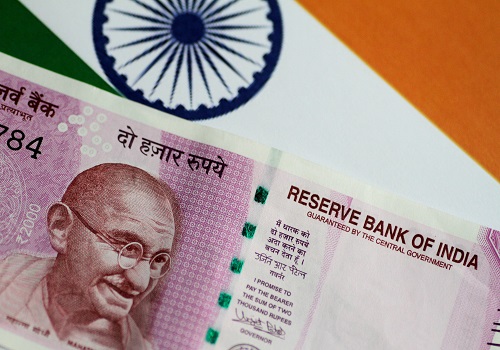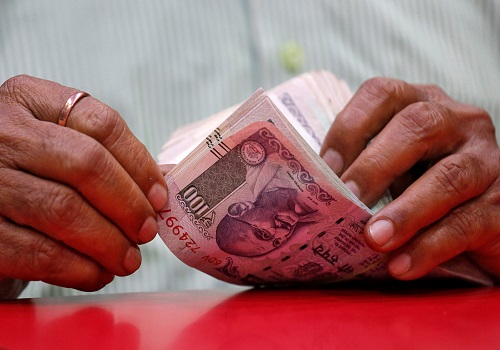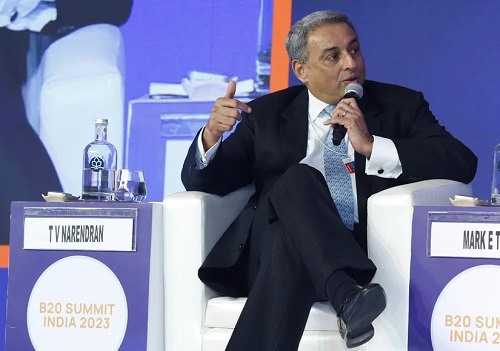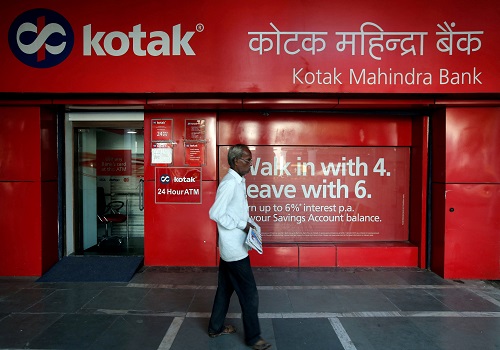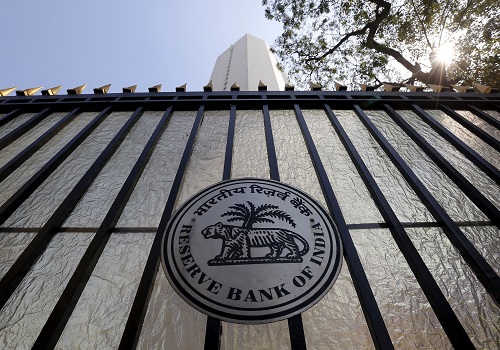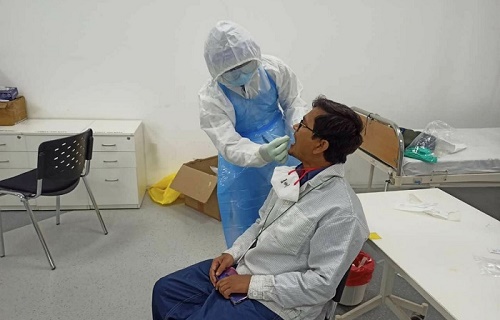Banking and NBFC Sector Update - Budget 2021: Progressive growth push, stress asset resolution – bode well for financiers By ICICI Securities

Follow us Now on Telegram ! Get daily 10 - 12 important updates on Business, Finance and Investment. Join our Telegram Channel
Budget 2021: Progressive growth push, stress asset resolution – bode well for financiers
Expansionary counter-cyclical fiscal policy with focus on reviving growth and progressive steps towards addressing stressed assets bode well for corporate financiers. Sharp budgeted rise in capital expenditure and prolonged path to fiscal consolidation by 2026 reflect economic revival precedence in the approach. It reaffirms our stance of India being on the cusp of re-leveraging. With growth push being at the centrestage, steps towards resolution of stressed assets through ARC and AMC structure, encouraging SARFAESI Act invocation for NBFCs in lowticket category, revamped reforms scheme for discoms, PSB recapitisalition and privatisation, reflect government’s thrust to streamline and strengthen the financial ecosystem. Key beneficiaries: Axis, SBI, PSU banks, PFC, Aavas, Cholamandalam, SCUF, City Union Bank, etc.
* Government spending precedes fiscal deficit consolidation target – a welcome move: Precedence of spending over fiscal deficit target is a welcome move – government expects fiscal deficit of 9.2% for FY21 - will need another Rs800bn for which it will approach market in the next 2 months. Gross fiscal deficit for FY22 is pegged at 6.8% of GDP (higher than expectations) and will submit the deviation statement highlighted to be back on the path of fiscal consolidation (of below 4.5%) by FY26. The prolonged path to fiscal consolidation, which may pressurise bond yields, is a welcome step as there is a clear focus on improving the quality of spending by augmenting capital expenditure with emphasis on transportation infrastructure (roadways and railways) and affordable housing.
* Confidence and demand push through government capex was much needed: Government’s growth push approach should kick-start the capex cycle sooner than later. This, especially in the backdrop of structural policy initiatives (labour law reforms, PLI, etc), competitive corporate tax rates etc, conducive investment climate, ample balance sheet resources (to absorb capex spend) and corporate asset quality cycle nearing its end. Indian financiers, too, have saddled themselves with ample liquidity/capital buffer to tap the emerging opportunity. It reaffirms our stance highlighted in in our report Bank Credit Outlook 2021: On the cusp of releveraging (post deleveraging phase) that we are at the inflection point with respect to credit growth outlook.
* Stress resolution under ARC and AMC structure: To dispose the legacy stressed asset pool and fast-track asset resolution, government recommended setting up an ARC and AMC. The objective is to consolidate and take over the existing stressed debt, manage, and then dispose the assets to alternate investment funds and other potential investors for eventual value realisation. Also, the NCLT framework will be strengthened and special framework for MSME will be introduced. Key beneficiaries are PSU banks, SBI, Axis, PFC, REC etc.
* Development financial institution – should help in reviving capex cycle: In an expansionary Budget, government has allocated Rs5.4trn worth of capex (up 35% over FY21) – primarily towards railways, roads, bridges etc. To ensure initial funding capex, it is mulling to set up a professionally managed development financial institution with an initial capital outlay of Rs200bn. It plans to build a lending portfolio of at least Rs5trn over the next three years. Considering relatively low capital of PSBs and lack of intent from private financier to fund big-ticket infra projects, DFI is likely to kick-start infra capex, the multiplier effect of which will boost investment confidence of the system with a lag.
* Strengthening NBFCs to ensure seamless credit flow to small borrowers: Budget 2021 proposes to reduce the minimum loan size eligible for debt recovery under SARFAESI Act from the existing level of Rs5mn to Rs2mn for NBFCs with minimum asset size of Rs1bn. Key beneficiaries will be the collateralised lenders in this category – Cholamandalam, SCUF, Magma etc.
* Commitment towards privatisation and asset monetisation: It proposes to take up privatisation of two PSUs (other than IDBI Bank) and one general insurance company in FY22 and the necessary legislative amendments will be considered for the same. We believe the two PSU banks to be privatised may the ones that were not amongst the mega merger plans – including Central Bank, Bank of India, UCO, Bank of Maharashtra, Punjab & Sind Bank, IOB. (Refer chart 7,8)
* PSU bank recapitalisation – at lower end of expectations: It was expected that after infusing Rs3.16tn in the last five years in PSU banks, now there are 3 PSU banks (IOB, Central, UCO) and 1 private bank (IDBI) under the PCA framework. Coupled with this, few large PSU banks have already raised resources from capital markets and many others have announced plans to raise resources in a staggered manner, depending on the prevailing market circumstances. Hence this year expectations for PSU bank recapitalisation was set lower in the range of Rs200- 400bn. Recapitalisation of Rs200bn is proposed for FY22 - with stress resolution initiatives, stress capital requirement might not be significant and this seems sufficient.
* Power sector – revamped reforms scheme for discoms – positive for PFC/REC: A revamped reforms-based result-linked power distribution sector scheme will be launched with an outlay of Rs3trn over 5 years. The scheme will provide assistance to discoms in infrastructure creation including pre-paid smart meter and feeder separation, upgradation of systems, etc., tied to financial improvements. Also, a framework will be put in place to provide choice to customers to choose from more than one distribution company.
* ‘Voluntary’ vehicle scrapping policy is not as stringent as anticipated: The government will be separately announcing a voluntary vehicle scrapping policy to phase out old and unfit vehicles. This will help in encouraging fuel-efficient, environment-friendly vehicles, thereby, reducing vehicular pollution and oil import bill. Vehicles will undergo fitness tests in automated fitness centres after 20 years in case of personal vehicles, and after 15 years in case of commercial vehicles. The measures are not much stringent as expected for used vehicle financiers - Shriram Transport. Lower threshold than suggested would have led to lower potential pool and second hand pricing.
* Interest deduction for affordable housing/rental housing – mere extension of benefits by one year: Additional deduction of interest, amounting to Rs0.15mn for loans on the purchase of affordable houses is now available upto March 2022. Also, tax holiday to affordable housing developer, too, has been extended by one year to ensure steady supply. Tax exemption is applicable for notified affordable rental housing projects for migrant workers.
* Financial boost to agri and MSME: Government continued its budgetary support to agri & MSME sectors as reflected in – A) To facilitate credit flow under the scheme of Stand-up India, it is lowering margin money requirement to 15% from 25% earlier and also including loans for activities allied to agriculture into this, B) Rs157bn provided to MSME sector, and C) a special assistance scheme worth Rs10bn for the welfare of tea workers especially women and their children in Assam and West Bengal. Key beneficiaries of financial assistance to agri, MSME and tea workers will be Bandhan, City Union Bank, CreditAccess etc.
* Time bound access to deposit insurance cover: After increasing the deposit insurance cover to Rs0.5mn last year, it would now move the amendment to streamline the provisions to facilitate depositors to access deposit insurance cover in an easy and time bound manner.
* Gold import duty cut: Gold import duty is rationalised from 12.5% to 7.5% - can weigh on gold prices and gold financiers in the interim.
* Insurance - ULIP business universe reduces; FDI limit increased structurally positive: With government lifting tax exemptions on ULIP returns for all prospective policies with aggregate annual premium of more than Rs250,000 (as a portfolio) in Budget 2021, the available universe of ULIP business reduces for Indian life insurers, especially in high net worth/affluent category. Diversified insurers with a wider reach will have relatively lower impact. Though the impact on Value of New business is small, it is incrementally negative for life insurers. However, increase in FDI limit in insurance from 49% to 74% is structurally positive. LIC IPO remains a big bang event.
* Capital market initiatives
* Consolidate the provisions of SEBI Act, 1992, Depositories Act, 1996, Securities Contracts (Regulation) Act, 1956 and Government Securities Act, 2007 into a rationalised single Securities Markets Code.
* Government will support the development of a world class financial-technology hub at the GIFT-IFSC.
* To enhance secondary market liquidity, the government has proposed to create a permanent institutional framework for a proposed body that will purchase investment grade debt securities both in stressed and normal times and help in the development of bond market.
To Read Complete Report & Disclaimer Click Here
For More ICICI Securities Disclaimer https://www.icicisecurities.com/AboutUs.aspx?About=7
Above views are of the author and not of the website kindly read disclaimer


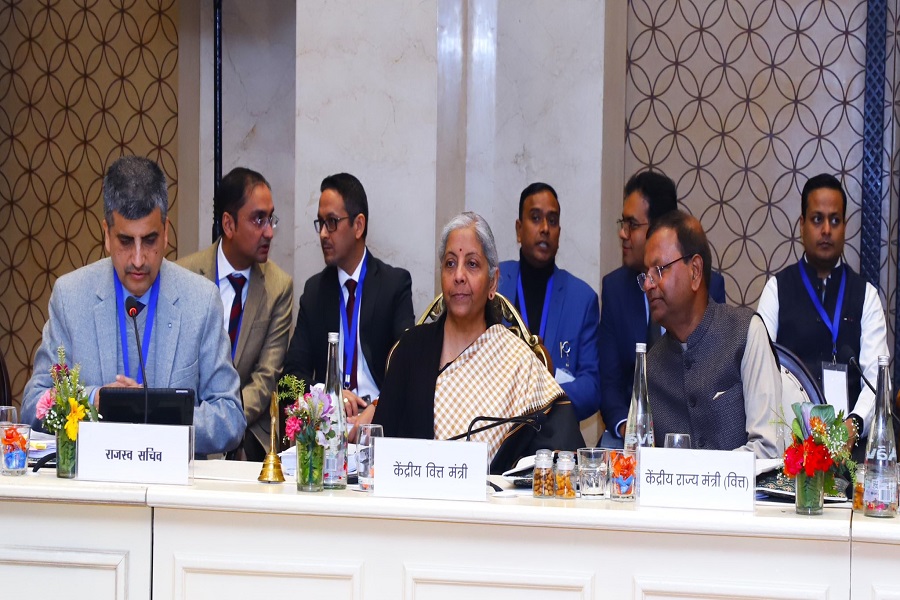









 320-x-100_uti_gold.jpg" alt="Advertisement">
320-x-100_uti_gold.jpg" alt="Advertisement">

